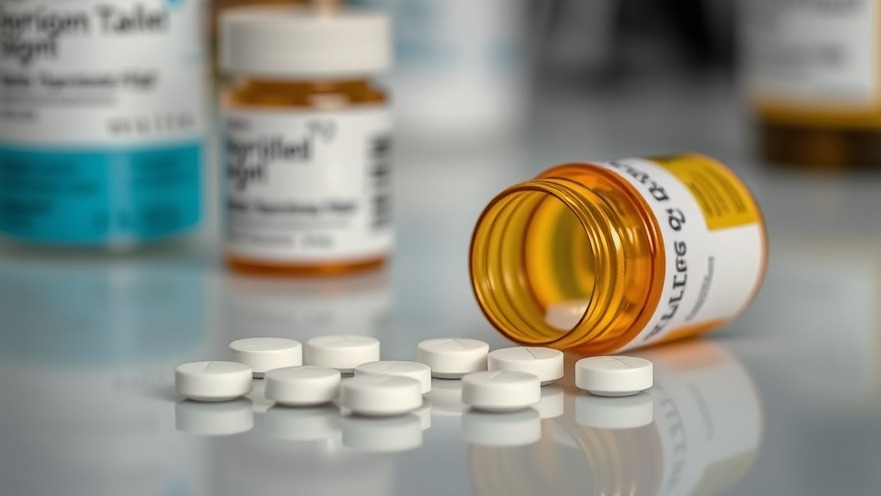
Understanding the Recent Action on 7-OH Opioid Products
On August 13, 2025, FDA Commissioner Marty Makary made headlines with his commendation of Florida's Attorney General, James Uthmeier, for the decision to classify certain concentrated forms of 7-hydroxymitragynine (7-OH) as a Schedule I controlled substance. This emergency rule comes in direct response to the proliferation of these potent opioid products across communities, with a notable concern over their appeal to younger demographics through enticing flavors such as candy and ice cream.
The decision marks a crucial step in addressing the opioid crisis, particularly given that 7-OH is one of the active compounds derived from kratom, a plant that’s gained controversial traction in the wellness market. While proponents of kratom argue for its potential benefits, including pain relief and opioid withdrawal support, the FDA has persistently voiced caution due to safety concerns.
The Public Health Threat: 7-OH Products
The availability of concentrated 7-OH products has surged dramatically, making their way into various sectors, often under the guise of health and wellness supplements. This has raised alarm bells among health professionals who see the potential for misuse leading to addiction and health risks, particularly among children and adolescents. The FDA's assertion calls for the designation of these products as controlled substances, highlighting the urgent need for regulation based on public safety and well-being.
Emphasis on Community Awareness and Education
In light of this development, Makary urges Florida’s leaders—including parents, educators, and law enforcement—to dismiss misconceptions surrounding the safety of 7-OH and to mobilize community efforts toward educating the public. This response is not merely regulatory; it seeks to empower communities by sharing knowledge around these products, spurring dialogue on their associated risks and encouraging prevention strategies.
What This Means for Concierge Health Practitioners
For concierge health practitioners, this ruling presents both challenges and opportunities. Practitioners must stay informed about such regulatory changes, as they can influence patient discussions and treatment options. Furthermore, understanding these developments allows practitioners to position themselves as trusted sources of information in their communities. The growing concern over 7-OH products could open avenues for discussing alternatives in pain management or addiction treatment, thus enhancing practitioner-patient relationships.
Collaboration Among States and Federal Agencies
Makary's statements provide insight into a shifting landscape where state and federal regulations increasingly align to counteract the public health crisis stemming from opioid misuse. With the Drug Enforcement Administration (DEA) reviewing the FDA's recommendations, collaboration between state and federal agencies may pave the way for a more uniform approach toward controlling opioid substances across the country. Such measures will be vital in combating the surge of new psychoactive substances and ensuring public safety.
Looking Ahead: Predictions for Regulatory Changes
As this situation unfolds, a key question arises: how will other states respond? Looking ahead, it is likely that states witnessing similar growth in 7-OH product proliferation may adopt comparable regulations. This potential domino effect emphasizes the importance of vigilance among health care providers to stay ahead of emerging trends that could impact practice and community health.
Final Thoughts and Call to Action
The classification of 7-OH as a controlled substance is not merely a victory for Florida but serves as a beacon for other states to follow suit. Community engagement, education, and an unwavering commitment to safeguarding public health are imperative. We encourage concierge practitioners to become advocates for awareness around opioid risks and engage in proactive conversations with patients. Let's work together to foster a healthier future.
 Add Row
Add Row  Add
Add 




Write A Comment